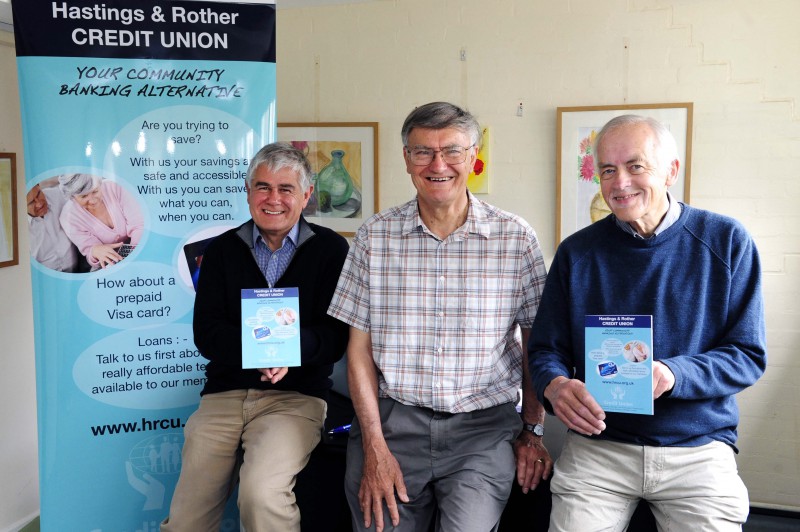When High Street banks refuse to lend to people on very low incomes, or engage with them at all, the Hastings & Rother Credit Union (H&RCU) can often step in to help. It provides a totally community-based savings and loan service to local clients. Advisers are seeing a significant rise in the number of local residents wanting to open accounts and requiring financial support to help with their increasingly difficult financial situations.
Hastings and Rother remains a low-wage, benefit-dependent area. Child poverty stands at more than 25 per cent and poor transport links compound people’s financial and social exclusion. Residents are under very real financial pressure as recent cost-of-living increases impact at the same time as the benefits system is being reconstructed.
“We are already seeing the effect of reduced levels of local housing allowance impacting upon people’s ability to pay their rent,” says the credit union’s manager, Richard Parkinson. “Once people have shown themselves to be regular savers, we can offer them a loan at 2 per cent interest per month. Because we know our customers so well, we can be really flexible.”
Local housing allowance is currently paid to most tenants direct, rather than to the landlord. The credit union handles the rent for about 100 savers, paying their rent direct to their landlord on their behalf. This removes the temptation to use that money for more immediately pressing items and leave the rent unpaid – with dire consequences.
“We are extremely concerned about the effect of the upcoming universal credit. We see this as only adding to these pressures, especially as it is to be paid monthly in arrears,” says Parkinson. Using a grant from Sussex Community Foundation, H&RCU has recently set up an outreach office at the Tilling Green Community Centre, specifically targeting the estate and the area around it.
Forty per cent of Rye residents live here and incomes are low. The growth of pay-day loan and cheque-shop outlets in the area is proving problematic. “We see people already using them to meet routine household expenditure at punitive rates of interest (up to 4,000 per cent). We often have to assist to sort out the mess this causes to peoples’ lives. To be honest, pay-day loans are like playing with dynamite,” says Parkinson.
The local credit union is 10 years old and handles around £1.2 million each year on behalf of about 1,200 regular savers. Some of the main reasons people choose to bank with it are that it’s simple and savers can save what they want, when they want.
“People save as little as £1 or £2 a week for all sorts of things, such as weddings, Christmas or holidays,” says Parkinson. “Once people have shown themselves to be regular savers, we can offer them a loan at 2 per cent interest per month. Because we know our customers so well, we can be really flexible.”
The average loan is £600-£700. “Try walking into a high street bank and asking for that kind of small loan and it won’t happen.”
Another reason people like the credit union is that their money is safe there. Unlike a mainstream bank account, savings are effectively ring-fenced so that creditors, whether that’s the Department of Work and Pensions or a utilities company, can’t get at a saver’s funds, meaning the saver has more control over finances and is able to budget more effectively – critical when you’re living on a very low income.
“People can find that their wages and or benefits are taken from them before they’ve had time to pay basics such as rent,” says Parkinson. “This is especially true if a ‘continuous payment authority’ arrangement is in place where a creditor can access – and empty – your bank account any time of the night or day to recoup monies owing to them.”
The credit union model helps people to take back ownership of their money and build community sustainability. One local saver’s story illustrates this beautifully:
“One of our savers was long-term unemployed but had been managing to save a very small weekly amount. He had about £140 in his account when he finally got a job. He needed £50 to buy a bike to get him to his new job. We were able to give him a loan for the bike which he then paid back from his first wages, leaving his hard-won savings intact.
“We like to help people who are trying to help themselves,” Parkinson adds.
*Miranda Kemp is communications manager of the Sussex Community Foundation.



